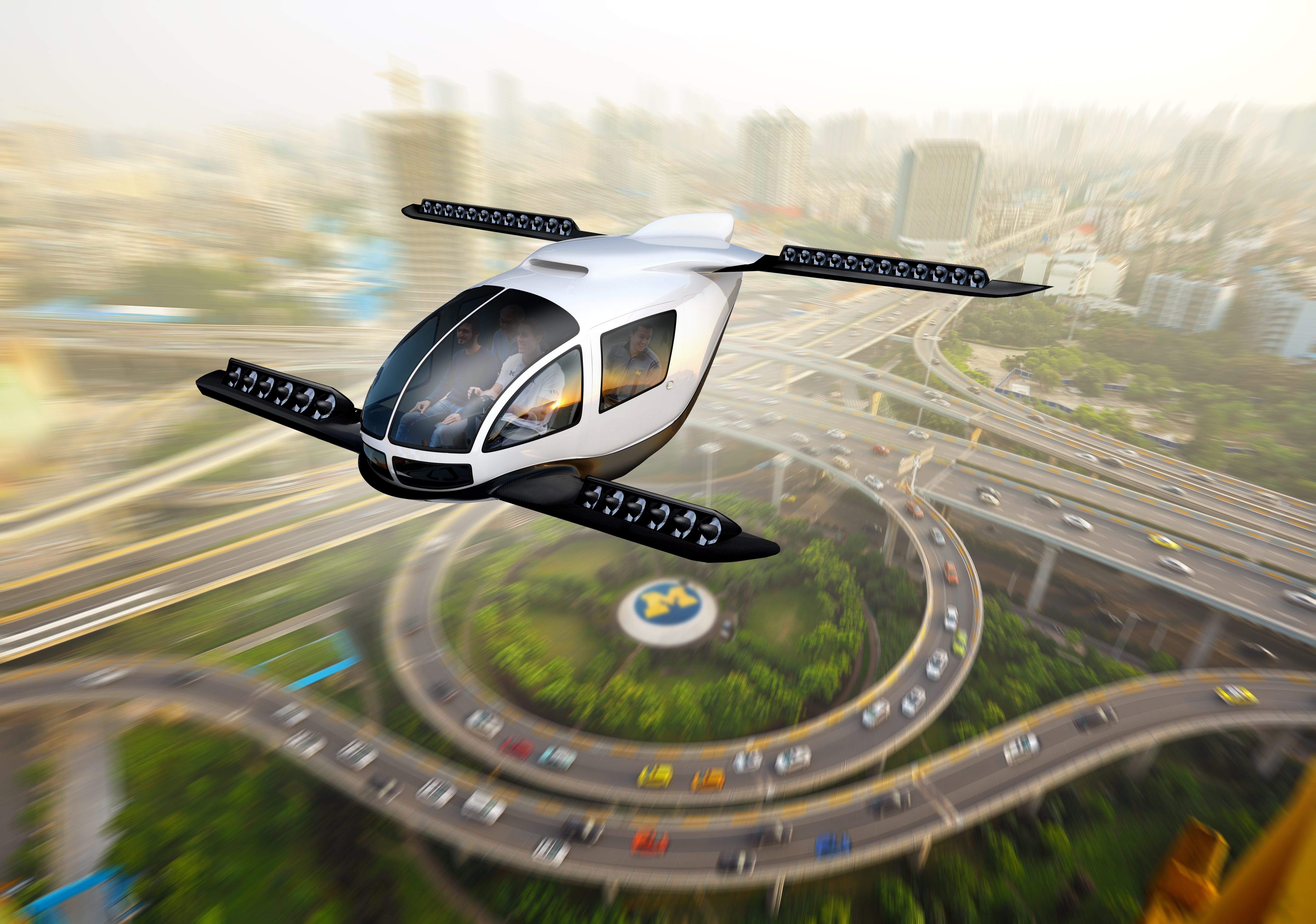Ford, UM study whether flying cars would be better for environment

While the automotive industry grapples with the complexities of releasing self-driving cars on public roads, researchers at the University of Michigan and Ford Motor Co. are already looking ahead to a time when roads could be irrelevant.
UM's Center for Sustainable Systems and Ford teamed up to study the environmental impacts of electric vertical takeoff and landing aircrafts — also referred to as VTOLs or flying cars.
The study found that these flying electric vehicles, while not suitable for short commutes, could play a "niche role in sustainable mobility for longer trips." Flying cars could also be valuable mobility options for congested cities as part of a ride-share taxi service, according to the study published Tuesday in Nature Communications.
"With these VTOLs, there is an opportunity to mutually align the sustainability and business cases," Akshat Kasliwal, one of the authors of the study and a grad student at the School for Environment and Sustainability, said in a statement. "Not only is high passenger occupancy better for emissions, it also favors the economics of flying cars. Further, consumers could be incentivized to share trips, given the significant time savings from flying versus driving."
The sustainability study, the first ever conducted for flying cars, comes as the automotive industry at large is focused heavily on autonomous and electric vehicles. Much of this focus is driven by emission regulation and a need to alleviate growing congestion problems in dense urban areas.
Ford, which lent its Ford-University of Michigan Alliance grant to the flying cars study, is testing autonomous vehicles with partner Argo AI in Dearborn, Miami, Pittsburgh, Silicon Valley and Washington, D.C. The testing and research of autonomous cars is to be applied by 2021 when Ford plans to launch a self-driving service in multiple cities.
Researchers found that the potential emissions for "flying cars" was 52 percent lower than that of gas-powered cars and 6 percent lower than battery-electric vehicles on trips of 62 miles (100 kilometers). That's because the vehicles use a lot of energy during takeoff and climb, but are more efficient once they reach a cruise of about 150 miles-per-hour.
Because of the immense energy required to get the flying cars off the ground, single-occupant gas-powered cars are more environmentally friendly on trips under 22 miles. The average car commute is about 11 miles, according to U-M.
“To me, it was very surprising to see that VTOLs were competitive with regard to energy use and greenhouse gas emissions in certain scenarios,” Gregory Keoleian, senior author of the paper and director of the Center for Sustainable Systems at UM’s School for Environment and Sustainability, said in a statement.
UM and Ford researchers did not develop a flying car for the study. Instead they used publicly available information from corporations and startups that have developed VTOL prototypes. The researchers used that information to calculate energy use and greenhouse gas emissions via a physics-based model, according to UM's statement.
Four of the paper's co-authors are from Ford's Research and Innovation Center in Dearborn.
"As we focus on our commitment to deliver smart vehicles for a smart world, our teams will continue to investigate all innovation avenues that can deliver freedom of movement and drive human progress," Ford said in a statement. "The work with U-M on the sustainability impacts of vertical takeoff and landing aircraft (VTOLs) is a terrific example of our relentless drive for innovation."
nnaughton@detroitnews.com
Twitter: @NoraNaughton